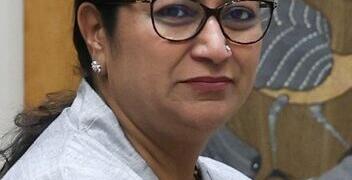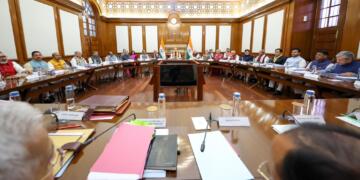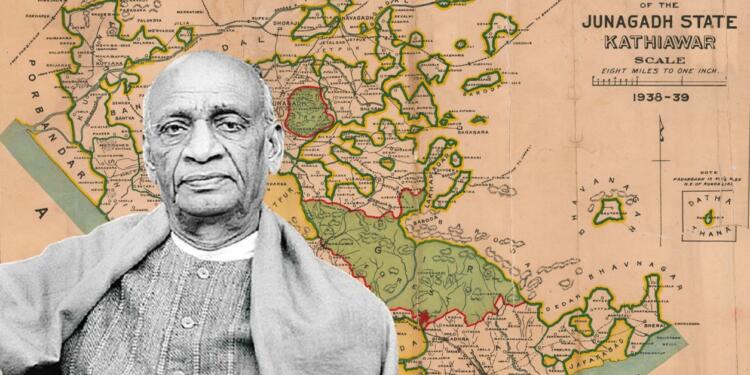In the long illustrious history of civilizational nations like India, there are only a handful of people who find themselves deeply etched in the memory of the people. And even a few are remembered and revered by the millions for their good deeds. One such name is the former Deputy Prime Minister of the country, commonly known as the Iron Man of India, Sardar Vallabh Bhai Patel. While it is out in popular knowledge that Sardar Patel played a pivotal part in assimilating the country into one — merging the hundreds of princely states into the Union that is India, but not many know the story of the accession of Junagadh, a princely state located in what is now Gujarat.

Nawab of Junagadh, Muhammad Mahabat Khanji III, a Muslim whose ancestors had ruled Junagadh and small principalities for some two hundred years, wished to join the Dominion of Pakistan after partition. However, more than 80 percent of the population of the Dominion was Hindu, and a majority of them wanted to be a part of India.
The Hindu Heritage of Junagadh is very rich with Somnath Temple, the centuries-old Hindu site that has been attacked by Islamists multiple times but survived and revived, located in the area near the port of Veraval.
After the Nawab decided to go with Pakistan, thousands of Hindus of the region gathered in Mumbai and claimed independence under the leadership of Samaldas Gandhi. He became the head of Aarzi Hukumat or the Temporary Government of the princely state. The Hindus of the region were simmering with anger and there was danger of communal riots in the whole of Gujarat where the law-and-order situation was already very bad.
“Junagadh was an economic and administrative unit embedded in and deriving its sustenance from Kathiawar. Its detachment would turn it into a hothouse plant with no powers of survival. What worried me most were the immediate potentialities for turmoil when stability was the crying need of the hour. The Nawab’s action would have undesirable effects on law and order in Kathiawar as a whole. It would extend the communal trouble to areas where at present there was peace. There was also the fear that it would encourage the intractable elements in Hyderabad,” wrote V P Menon, the Former Secretary to the Government of India in the Ministry of the States who played an instrumental role in the accession of the princely states.
After the installation of the temporary government, Sardar Patel ordered Indian state machinery to be deployed in the border areas. Soon the Nawab of Junagadh fled to Karachi with all the valuables that he could get hold of.
On October 27, Shah Nawaj Bhutto (father of Zulfikar Ali Bhutto) wrote to Jinnah about the worsening situation in Junagadh and said that even the Muslims of the region are not interested in joining the Dominio of Pakistan. “…The situation has therefore so worsened that responsible Muslims and others have come to press me to seek a solution of the impasse. I do not wish to say much more. … The question is delicate but I feel it must be settled honourably to the satisfaction of all. It is impossible for me to court any further bloodshed, hardship and persecution of loyal people,” Bhutto wrote.
On November 7, Bhutto talked to Samaldas Gandhi, the temporary head, to formally take over the administration of the princely state. As per a report by The Indian Express, a plebiscite was held, and Pakistan got only 91 votes and more than 1.9 lakh votes were in favour of India. Even the Muslims of the region voted to join India and on November 13, 1947, Sardar Patel visited there with a huge reception.
The brilliance of Sardar Patel and V P Menon won us the Junagadh state and many other princely states that were reluctant to join the Dominion of India. Today’s India is the seventh-largest country in the world by area, thanks to Sardar Patel, the Iron Man of India.

























